Have you ever noticed your cat acting differently when you're away? Perhaps they become more clingy, meow incessantly, or display other signs of distress. It's not just your imagination—cats can experience separation anxiety too.
Welcome to the intriguing world of separation anxiety disorder (SAD) in cats, where the bond between them and their human companions runs deep. When separated from their loved ones, cats may exhibit excessive anxiety and behavioral changes that can be puzzling and concerning for their owners.
From understanding the definition of SAD to discovering the common behavioral manifestations, we'll navigate through the complexities of this emotional condition.
By gaining insights into the enigma of separation anxiety, we'll equip ourselves with the knowledge and tools to support our cats and create a sense of security even in our absence.
Are you ready to deepen your understanding of your cat's emotions and behavior?
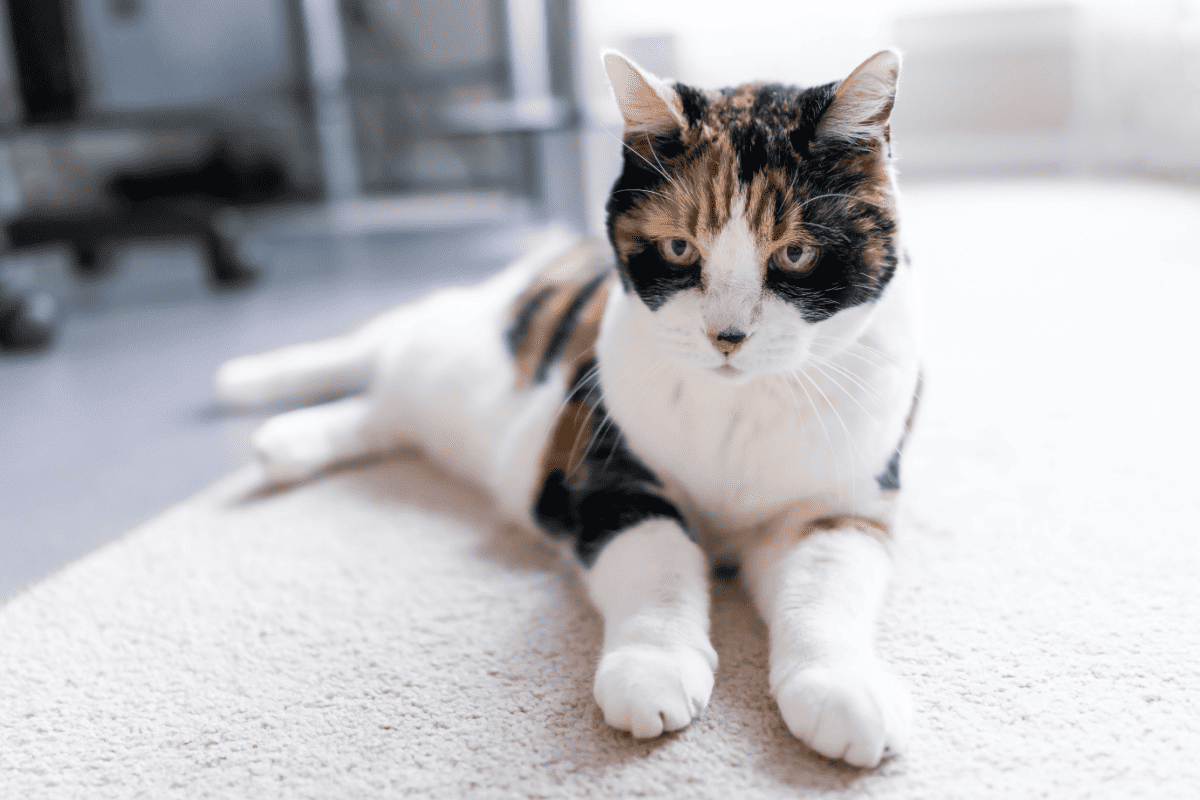
Understanding Separation Anxiety in Cats
Decoding SAD: Wikipedia's Insights and Beyond
Let's begin our quest for understanding by delving into the definition and explanation of separation anxiety disorder (SAD) in cats.
Wikipedia says separation anxiety disorder (SAD) is a psychological condition in which an individual experiences excessive anxiety regarding separation from home or from people to whom the individual has a strong emotional attachment. It’s often associated with dogs who left alone, display frantic behavior like destroying furniture, scratching the door, or howling until their person is home again but cats can be anxious as well.
Wikipedia provides a helpful starting point, but we'll go beyond the surface to uncover a deeper comprehension of this complex condition.
Uncovering the Triggers: What Causes Separation Anxiety in Cats?
To truly understand separation anxiety in cats, we must explore the underlying causes and triggers that can ignite this emotional turmoil.
From major life changes to sudden disruptions in routines, various factors can contribute to the onset of separation anxiety. By shining a light on these triggers, we gain valuable insights into how to address and mitigate the anxiety experienced by our feline companions.
The Language of Anxiety: Recognizing Signs and Symptoms
An anxious cat may not be able to express their distress in words, but their behavior tells a story. By familiarizing ourselves with the signs and symptoms of separation anxiety, we can become fluent in the language of feline anxiety.
Restlessness, excessive vocalization, changes in appetite, and destructive behavior are just a few of the ways in which cats may communicate their unease.
By unraveling the mysteries surrounding this condition, we'll empower ourselves to provide the love, support, and understanding our feline friends need to overcome their anxiety and thrive in our absence.
Members Open Up: Personal Tales of Cat Separation Anxiety
Separation anxiety in cats is not just a theoretical concept; it's a reality experienced by many devoted cat owners. Let's dive into the heartfelt stories shared by our members, shedding light on the profound impact of this condition on our feline friends' lives.
Pipsqueak's Unbearable Distress
Feralvr says her cat Pipsqueak started showing signs of anxiety after his best friend, Potsie, became ill while she was gone. Potsie was rushed to the vet but didn't survive and Pipsqueak now tries to delay or stop her from leaving the house.
“When I grab my purse, he starts acting up in any way he can—he gets under my feet, talks up a storm, demands I toss his puff ball toy, runs to the door, and will even go in the closet when I try to get my shoes out and on.” He also howls but does stop once she’s gone. Pip is most upset in the few minutes she’s getting ready to leave.
Aria's Persistent Need for Connection
Aria displays a different kind of anxiety, says vball91. “My husband says that when I'm gone, Aria is very clingy and needy and meows constantly.” Aria always wants to be on his lap but is much more insistent about it. “She could just be asking my husband where her personal slave is!”
Coping Strategies: Trips and Trusted Caretakers
It’s a good idea to take a short trip before a longer vacation, so your cat can get used to the idea of his family being away and another caretaker, like a pet sitter, family, or friend he knows, coming by to see and feed him. SocksJr says her first trip was for two days.
The next was for a week and a family friend came by daily. For the first three days, the cat came out but after that, hid under the couch and meowed. She stopped grooming herself and her normally soft hair became matted and dirty. Once her people were home again, she was back to her social self and cleaned up her fur within two days.
Lavender Point Siamese's Troublesome Episode
Katnurse is a vet tech who catsits for clients. One lavender point Siamese is fine until about day six or seven of his owner’s absence but then starts to pull hair out until he has bald patches. His asthma also acts up, even though he’s taking his medicine as prescribed. “When family returns, all goes back to normal. I think he just misses his family!”
Boarding the cat is another option. Mary Louise reports that she boarded all three of hers at the vet’s office while she was in Hawaii. “Our vets almost told us to come home early because Baby went on a hunger strike.” In addition to the stress of being away from his people, in a strange facility, there were also dogs. “Baby didn’t like dogs.”
The Vocal Protest and Forgiving Nature
Yayi had someone stay at the house when she traveled. “The cats pawed at the bedroom door and meowed, more vocal than usual. They hardly ate.” In spite of the anxiety they had over their person being gone, when she came home, they ignored her! Once she showered and changed clothes, they came running for attention.
Was she being punished for leaving? Or did they wait to see if she was home to stay before forgiving her for leaving?
Constant Cries and Soothing Rituals
1of10000fists says her cat cries constantly when she leaves.
After she graduated from school, her need to leave home diminished. As a result, he became accustomed to her being home most of the time.
A trip to the grocery could cause anxiety. “We talk all the time, he talks to me a lot too. I inform him where I'm going and how long I'll be gone. If I forget, he waits by the door, anxiously scanning his surroundings with wide, scared eyes."
Keeping him updated on what she’s doing seems to help. “ I've noticed that sometimes he wants to be in the garage with me or look out the front door. I let him look around. We sit on the porch. I put him in my coat and zip him in and we'll just sit till he wants to go in. Sometimes, he goes with me to get the mail. The more I do these things with him, the less anxious he is when I leave.”
“I sometimes put a clock nearby too, and tell him when the clock is "here" I'll be home. He looks at it, sniffs it, and goes back to bathing. I feel like anyone watching would think I’m a moron talking to him like this but it makes him feel better and calm, so I don’t care.”
SIGN UP FOR THECATSITE'S EMAIL UPDATES >
These personal accounts provide a glimpse into the deep emotional bond between humans and cats. They also highlight the challenges faced by both parties when separation anxiety strikes.
Understanding a cat's mind can be challenging. However, with patience and experimentation, you can discover what calms your cat when you're away.
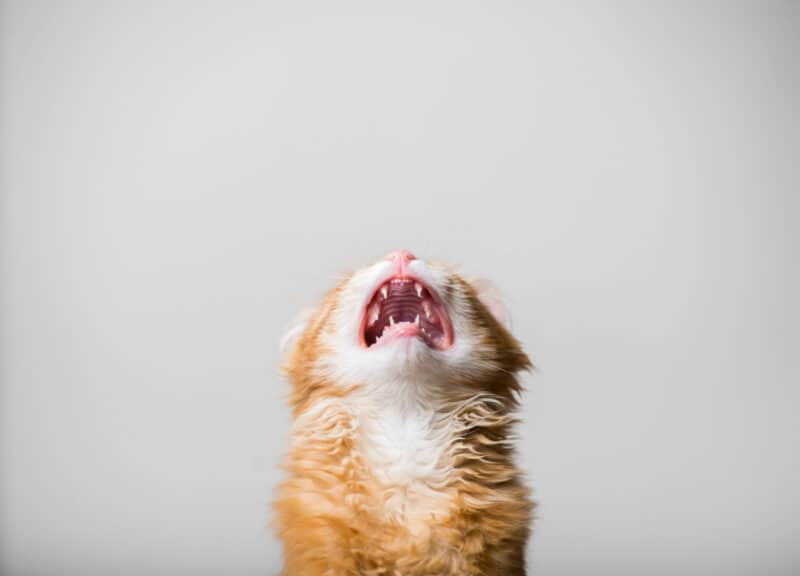
Navigating Separation Anxiety in Cats
Dealing with separation anxiety in our beloved feline companions can be a challenging journey.
However, there are effective strategies to alleviate their distress. Practical tips can also help strengthen the bond between you and your cat.
Let's explore these empowering coping strategies together.
Preparing Cats for Absences: Minimizing Anxiety with Gradual Introductions
To minimize the impact of your absence, consider taking short trips before longer vacations. This allows your cat to become familiar with the idea of temporary separations and the presence of a trusted caregiver.
Gradual introductions to alternative caretakers can make a difference. Consider pet sitters, family members, or friends to help your cat adjust and feel more secure when you're away.
Creating a Comforting Environment: Surrounding Your Cat with Calm
Make your cat's surroundings as calming and reassuring as possible. Create a cozy and safe space with comfortable bedding, familiar toys, and soothing scents.
Provide hiding spots and vertical spaces for your cat to retreat to when feeling anxious. Consider using pheromone diffusers or playing calming music to promote relaxation.
Establishing Routines and Communication Techniques: Consistency is Key
Establishing a predictable routine can help alleviate anxiety for cats. Maintain consistent feeding times, play sessions, and interactive activities.
Regular exercise can help reduce stress and expend energy. Additionally, explore communication techniques such as leaving a garment with your scent. You can also use interactive toys to engage with your cat when you're away.
Seeking Professional Help and Advice: Expert Guidance for Complex Cases
If your cat's separation anxiety persists or becomes severe, it may be beneficial to consult with a veterinarian or animal behaviorist. They can provide professional guidance and develop a tailored treatment plan to address your cat's specific needs. Don't hesitate to seek their expertise if needed.
Concluding Thoughts on Separation Anxiety
As we conclude our exploration of separation anxiety in cats, let's reflect on the key takeaways. These insights can make a real difference in the lives of our anxious feline friends.
Separation anxiety is a genuine concern that can significantly impact the emotional and physical well-being of our cats.
Understanding its signs and symptoms is the first step toward addressing this common issue that many cat owners face.
Recognizing and addressing the specific needs of anxious cats is essential for their overall well-being.
By providing a secure and comforting environment, establishing routines, and utilizing effective coping strategies, we can help ease their anxiety and foster a sense of calm and contentment.
Every cat is unique, and what may work for one may not work for another.
As cat owners, we should actively experiment with different techniques and observe our cat's responses.
By being patient and persistent, we can uncover the strategies that bring the most comfort and relief to our furry companions.
For cases of persistent or worsening separation anxiety, we highly recommend seeking professional guidance from veterinarians or animal behaviorists.
These experts possess the knowledge and experience to develop customized treatment plans tailored to your cat's specific needs.
If you think your cat suffers from separation anxiety, or have any questions about this topic, please post them in the Cat Behavior Forum. You're welcome to leave feedback in the comments section below, but any specific questions for which you need replies belong in the forums. Thank you.
SIGN UP FOR THECATSITE'S EMAIL UPDATES >
Comments? Leave them using the form below. Questions? Please use the cat forums for those!
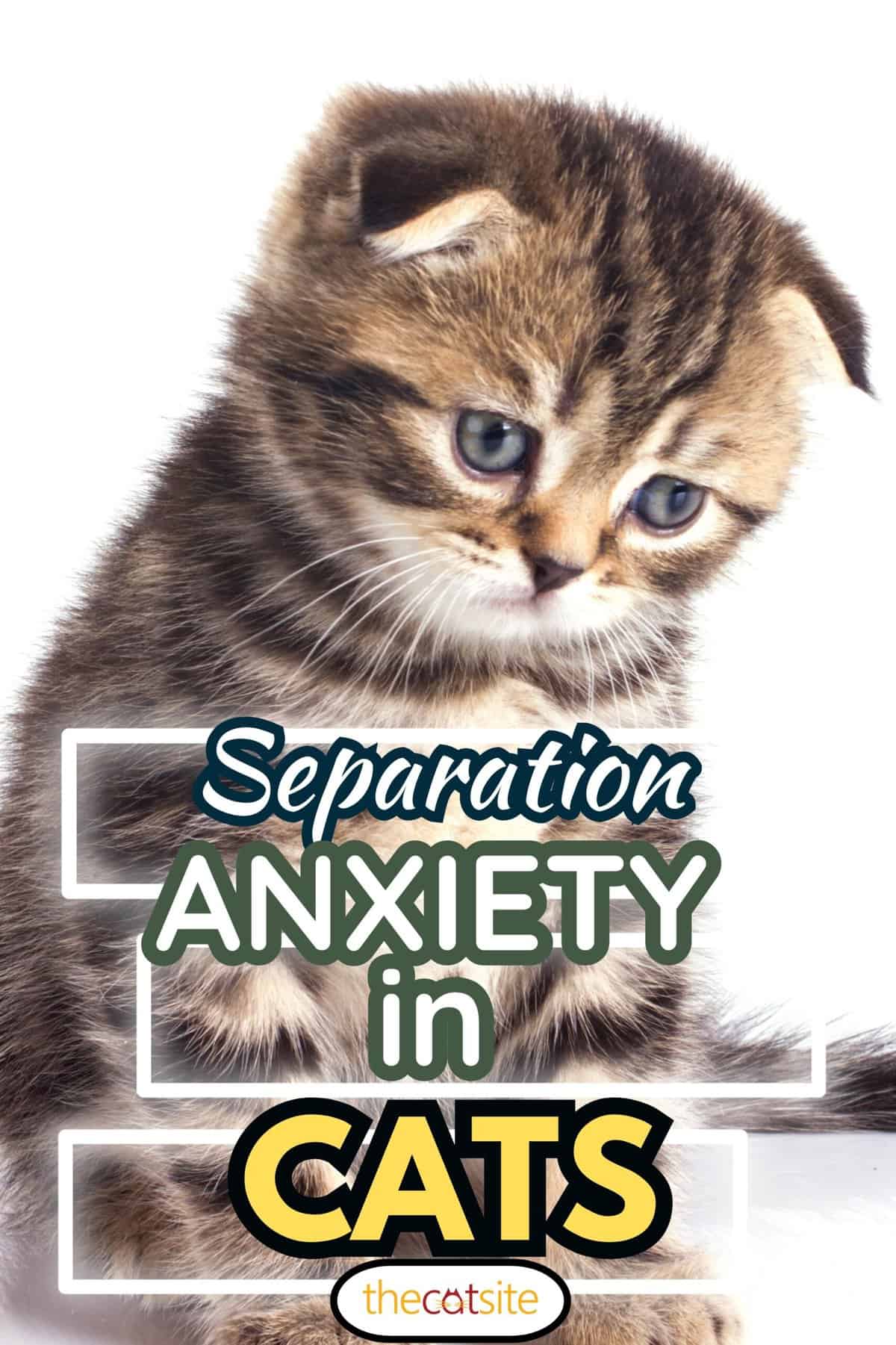
Note: We may get commissions for purchases made through links on this page.

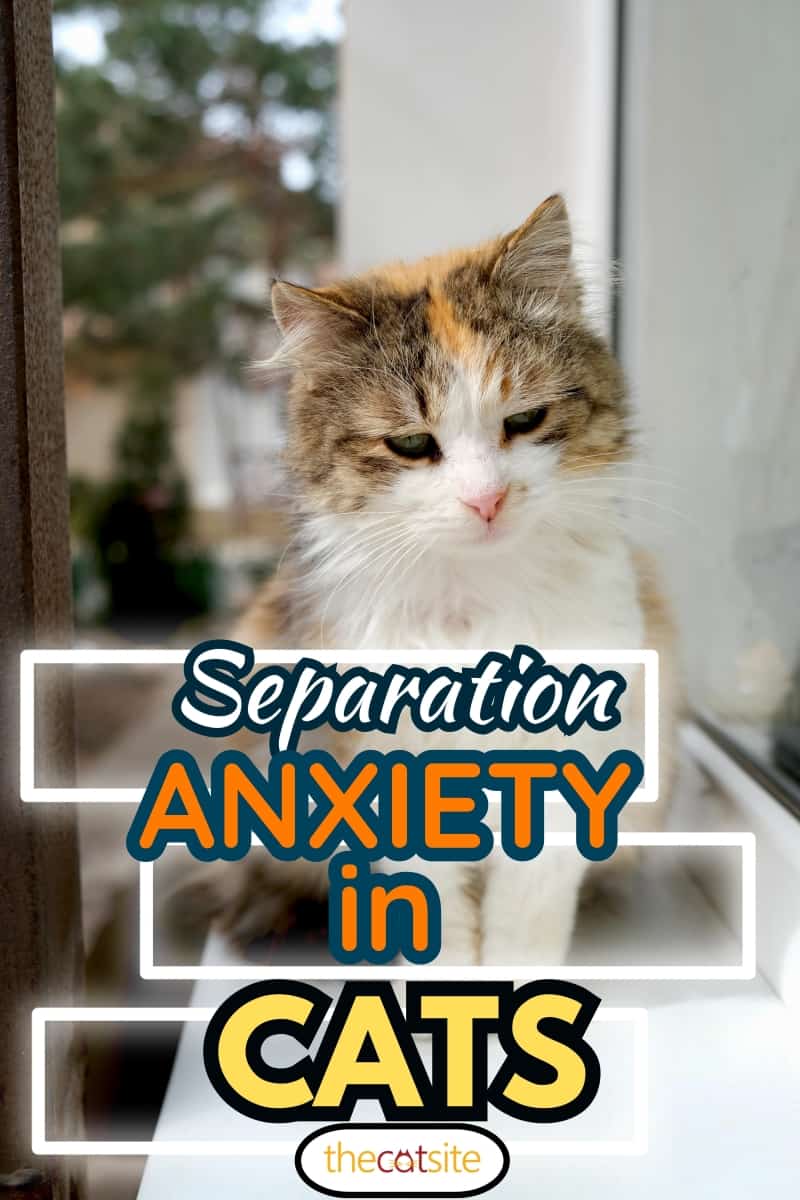
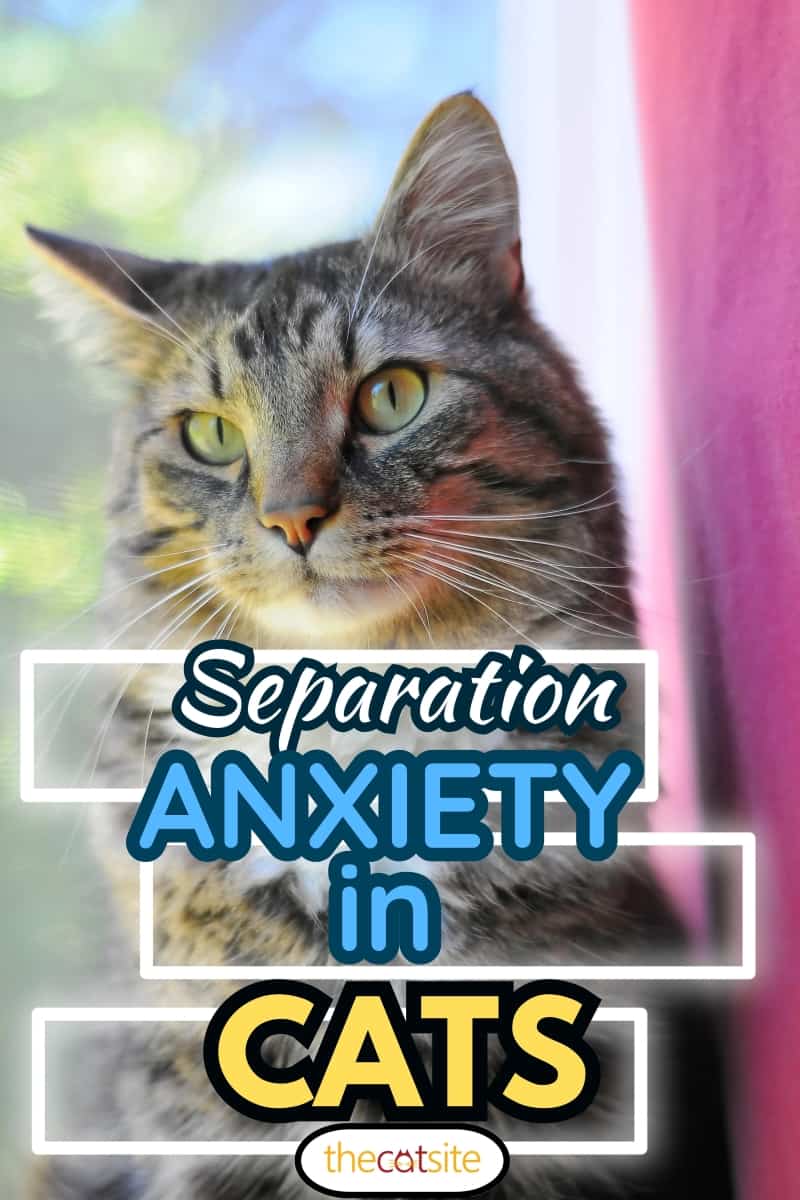
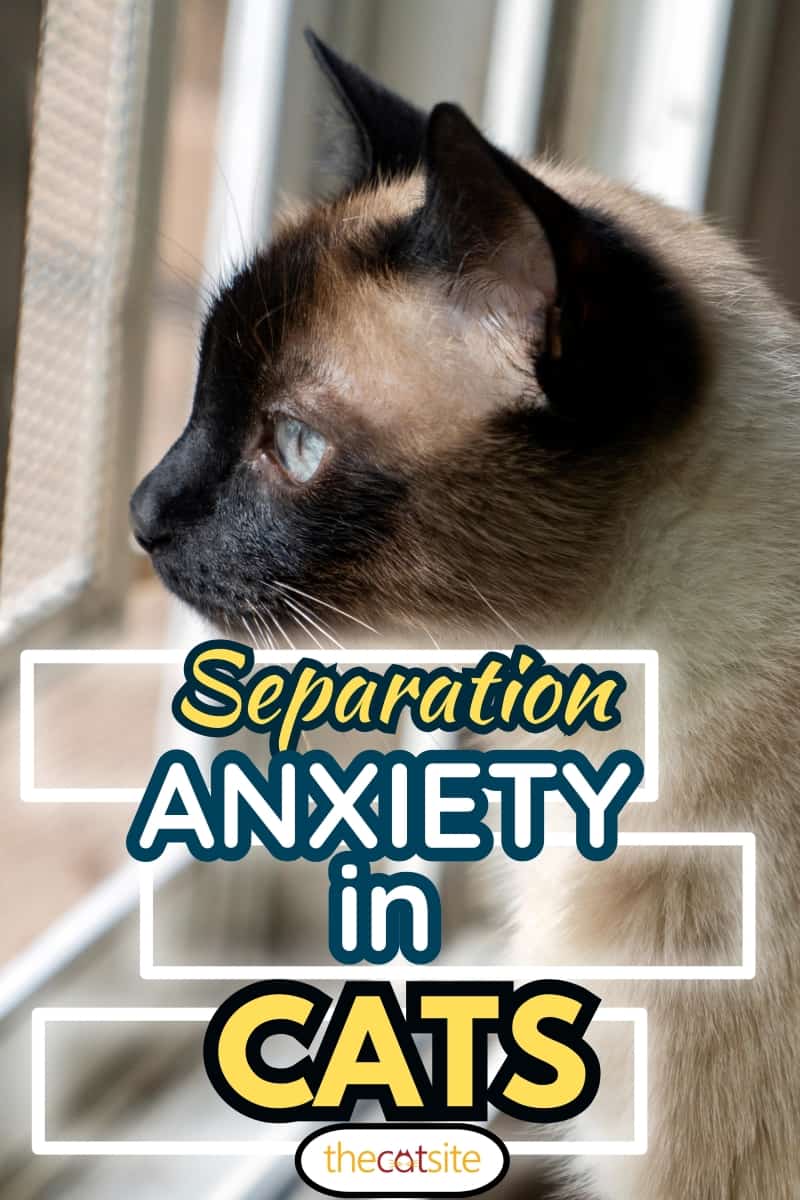



4 comments on “Separation Anxiety In Cats – Understanding, Experiences, And Tips”